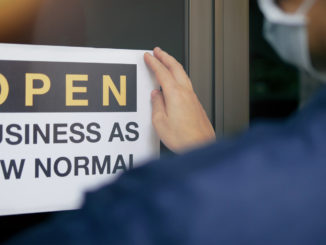Sponsored Content by Kambi
The regulated US sports betting market generated $1.5bn in 2020, and the scale of the opportunities it can present for tribal operators are hugely extensive. Current projections indicate that as more states regulate the market could be worth between $20bn and $30bn by 2030.
Regulatory developments are picking up pace in a number of states – Kambi’s internal projections indicate that more than 40 states will have passed regulation in some form by the end of 2022 – and tribes hold a strong hand in how some of these regulations are rolled out through compact negotiations. As this piece will discuss, sports betting has huge potential to elevate the entire casino floor and deliver even greater brand recognition. But how can tribal operators in those states where regulation has yet to materialize best prepare for sports betting?
Getting a head start
In states where we are awaiting regulation, there are still excellent opportunities open to tribal operators to steal a march on the competition through launching a free-to-play online sportsbook. Free-to-play enables you to boost your brand reach with customers who will naturally find their way to mobile sports betting in the fullness of time as regulation is passed. It can help to build your database, as well as player familiarity with your offering and loyalty to your brand.
A number of Kambi partners have successfully used free-to-play to build their reach in advance of regulation – empowering the growth of their customer databases and ensuring they are well prepared to take a position of market leadership when regulation is passed in the state.
Regulation may not be forthcoming in the states in which you operate, but having the right partnerships in place can help to give you a significant leg up on the competition in capitalising on the full scope of sports betting – and its potential to elevate your entire casino floor and brand – when regulation does arrive. Making sure that you have those partnerships ahead of time can help you to get ahead of the competition upon regulation.
Wider opportunities
The potential sports betting has to elevate every aspect of your property is truly vast, bringing new demographics through the doors of the casino and driving additional value to gaming and hospitality through cross-sell.
Kambi partner Penn National Gaming has found that land-based customers who engage with both casino and sportsbook generate five times the value of those that engage solely with casino, while at its Hollywood Gulf Coast property 59% of sports betting handle came from customers under the age of 40.
In general terms, tribes have two options open to them when it comes to launching sports betting. The first option, for those tribes that want to launch sports betting using their own brand – while leveraging and growing their own databases – is to partner with a trusted B2B provider capable of offering online and on-property expertise, along with all important regulatory certainty and speed to market. Kambi has partnered directly with Four Winds Casinos and Seneca Gaming Corporation, launching on property sports wagering in Seneca’s three New York casinos and Four Winds’ three Michigan casinos just weeks after our agreements were signed.
For those tribes who would prefer another operator to handle the day-to-day running of the sportsbook – operating sports betting under that operator’s brand, with a shared database for joint growth – there is the option to partner with a Kambi-powered B2C operator. This will still enable the tribe to benefit from Kambi’s US-proven sportsbook, deep offering and high-performance on-property technology. It is an approach that has been taken by the Gun Lake Tribe of Michigan, who partnered with Kambi-powered sportsbook operator Parx Casino to launch sports betting at Gun Lake Casino, as well as the Little River Band of Ottawa Indians, who have launched sports betting with Kambi partner Rush Street Interactive at the Little River Casino.
Whichever approach you favour, sports betting offers huge possibilities for future growth and revenue generation for tribal communities. If regulation has not yet arrived you can be sure it soon will, and having the right partners can be the first step on the road to long-term success.




